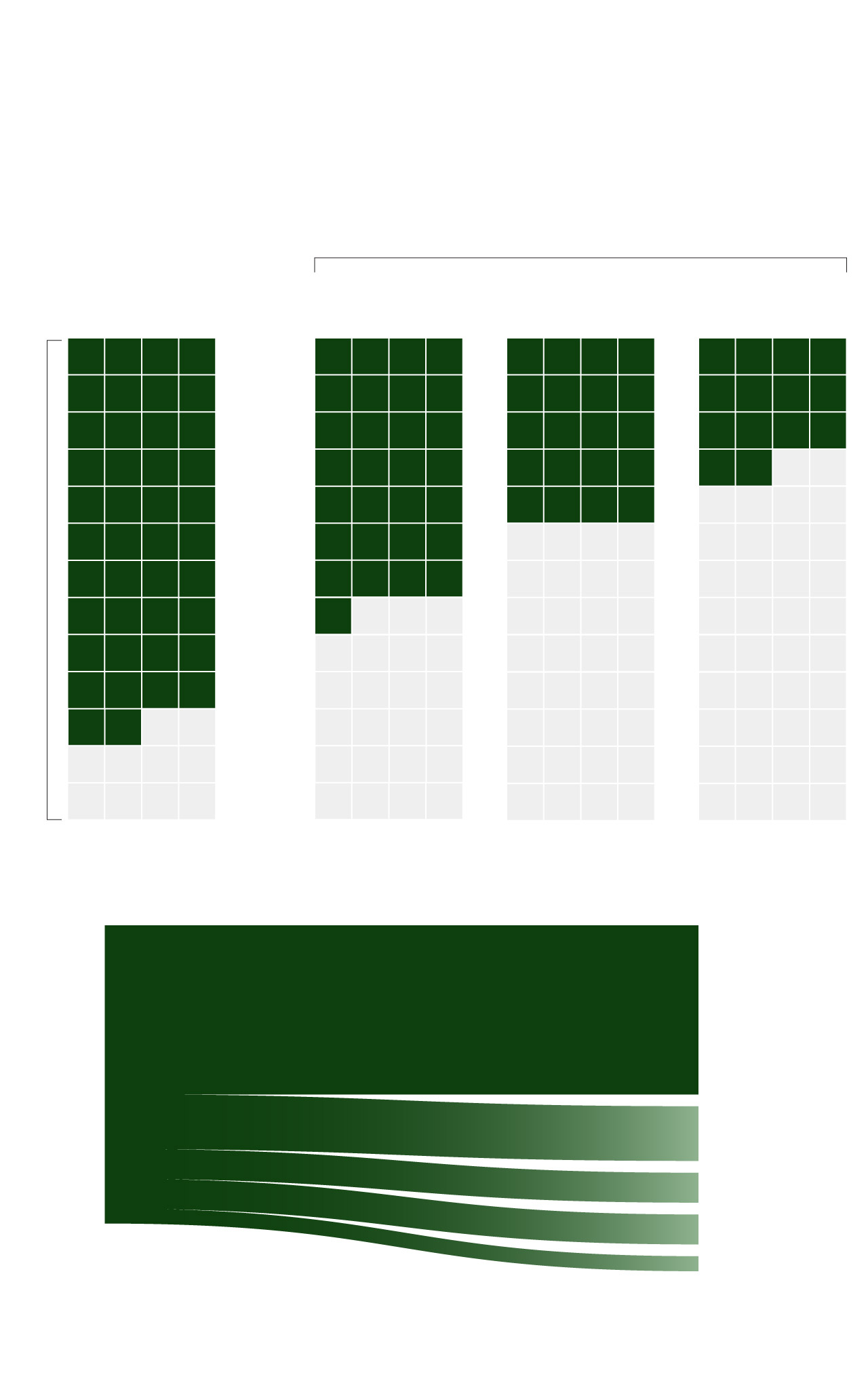The entertainment industry’s fourth wall is crumbling as more than 11,000 unionized writers picket for the first time since the 2007 strike, venting more than a decade’s worth of frustrations about the experience of working behind the scenes in Hollywood.
TV writers, whose projects are most immediately affected by the strike, have been trying to undo misconceptions about their jobs, which they say were never particularly glamorous even in the heyday of network TV. In the age of Netflix and Disney Plus, many writers say, grueling workloads and vanishing job security threaten the entire profession.
The Washington Post spoke to writers, union organizers with the Writers Guild of America, studio representatives and experts to debunk some persistent myths about TV writing.
Leaving aside one-in-a-million star showrunners like Shonda Rhimes and Ryan Murphy, it might seem that even the average TV writer is living the dream, getting paid to create stories watched by millions of people, in a star-studded industry that earns billions of dollars annually.
It might even look that way on paper, with the lowest-paid TV writers in the union earning at least $4,154 per week of work.
But TV writing is competitive and brutally unpredictable, with seasons shrinking and shows often canceled on short notice. Many writers say their paychecks get stretched very thin between lean times.
“Before I got this job as showrunner’s assistant … I had gone through a period of unemployment for three or four months, and I was feeling very demoralized,” said Lindsay Grossman, who was on set for the “Motherland” reboot. “I’ve been trying at this for a long time and for it to be that difficult to find a job 10 years in, it’s a hard pill to swallow.”
Back when network television reigned supreme, a typical 22-episode season of, say, “Seinfeld,” could employ a writer for 40 weeks or more. But in the streaming era, many seasons have shrunk to 12, eight or even fewer episodes. According to the WGA, a typical writing job for a streaming service lasts about 14 weeks. That means fewer weeks of pay.

Writers today have fewer weeks
of guaranteed work, resulting in
reduced and unstable income
In recent years, staff writers have had to work for multiple shows per year to make the same income as in previous years, when writers often only worked for one show, according to the Writers Guild of America. Television work is competitive and unstable, and working on one show per year—let alone multiple—is not guaranteed.
2000
broadcast
model
2023 models
Network
show
Network
show
Streaming
show
Staff writers work a median of 20-25 weeks
tper year, which guarantees a $4,546
minimum weekly income. Of that, they take
home about two-thirds of the pay, after fees
and taxes.
Take-home
pay
Minimum
weekly
income
Note: Staff writers are the lowest level of writer titles.
Minimum weekly income varies by number of weeks
worked and is set by the 2020 Writers Guild of America
contract.
Source: Writers Guild of America
JANICE KAI CHEN/THE WASHINGTON POST

Writers today have fewer weeks of
guaranteed work, resulting in reduced
and unstable income
In recent years, staff writers have had to work for multiple shows per year to make the same income as in previous years, when writers often only worked for one show, according to the Writers Guild of America. Television work is competitive and unstable, and working on one show per year—let alone multiple—is not guaranteed.
2000
broadcast
Model
2023 models
Network
show
Streaming
show
Network
show
42 weeks paid
Staff writers work a median of 20-25 weeks per year,
which guarantees a $4,546 minimum weekly income.
Of that, they take home about two-thirds of the pay,
after fees and taxes.
Take-home
pay
Minimum
weekly
income
Note: Staff writers are the lowest level of writer titles. Minimum weekly
income varies by number of weeks worked and is set by the 2020 Writers
Guild of America contract.
Source: Writers Guild of America
JANICE KAI CHEN/THE WASHINGTON POST

Writers today have fewer weeks of guaranteed work,
resulting in reduced and unstable income
In recent years, staff writers have had to work for multiple shows per year to make the same income as in previous years, when writers often only worked for one show, according to the Writers Guild of America. Television work is competitive and unstable, and working on one show per year—let alone multiple—is not guaranteed.
2000
broadcast
model
2023 models
Network show
Network show
Streaming show
42 weeks paid
Staff writers work a median of 20-25 weeks per year, which guarantees a $4,546 minimum
weekly income. Of that, they take home about two-thirds of the pay, after fees and taxes.
Take-home
pay
Minimum
weekly
income
Note: Staff writers are the lowest level of writer titles. Minimum weekly income varies by
number of weeks worked and is set by the 2020 Writers Guild of America contract.
Source: Writers Guild of America
JANICE KAI CHEN/THE WASHINGTON POST

Writers today have fewer weeks of guaranteed work, resulting in reduced income
In recent years, staff writers have had to work for multiple shows per year to make the same income as in previous years, when writers often only worked for one show, according to the Writers Guild of America. Television work is competitive and unstable, and working on one show per year—let alone multiple—is not guaranteed.
2000
broadcast
model
2023 models
Network show
Streaming show
Network show
42 weeks paid
Take-home
pay
Staff writers work a median of 20-25 weeks per year, which guarantees a $4,546 minimum
weekly income. Of that, they take home about two-thirds of the pay, after fees and taxes.
Minimum
weekly
income
Note: Staff writers are the lowest level of writer titles. Minimum weekly income varies by
number of weeks worked and is set by the 2020 Writers Guild of America contract.
Source: Writers Guild of America
JANICE KAI CHEN/THE WASHINGTON POST
But in an era of complex plot arcs and high production quality, writers say it takes roughly the same amount of work to shoot shorter TV shows as their longer predecessors, leaving a handful of writers with a more grueling workload.
“I just worked seven days a week, 13 to 14 hour days, for three months to make an eight-episode order,” said Danielle Sanchez-Witzel, a showrunner who’s worked on network shows such as “New Girl,” “My Name is Earl” and “The Carmichael Show,” and is also on the WGA committee negotiating with studios for a new union contract. “Me and one other writer worked those hours. It’s exhausting. It’s unsustainable.”
Writers can try to work on multiple shows in a year to balance out the shorter gigs, but many complain that studios are hesitant to hire someone with overlapping commitments, while some simply forbid moonlighting within Hollywood.
There’s also the matter of shrinking residuals — the percentage of profits some writers get each time their show is re-aired or licensed. The exact formulas for these are complex, but the WGA says that generally, the residuals from streaming platforms are far lower than those from network TV.
Ultimately, many writers are forced to work jobs outside the industry to make ends meet, or let their careers stagnate by repeatedly accepting jobs at the same pay rate.
https://ift.tt/agtpWdr
2023-05-29 13:00:00Z
CBMiV2h0dHBzOi8vd3d3Lndhc2hpbmd0b25wb3N0LmNvbS9hcnRzLWVudGVydGFpbm1lbnQvMjAyMy8wNS8yOS93cml0ZXJzLXN0cmlrZS1teXRoLWZhY3RzL9IBAA
0 Commentaires